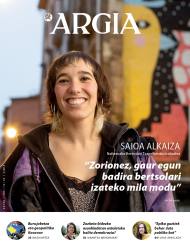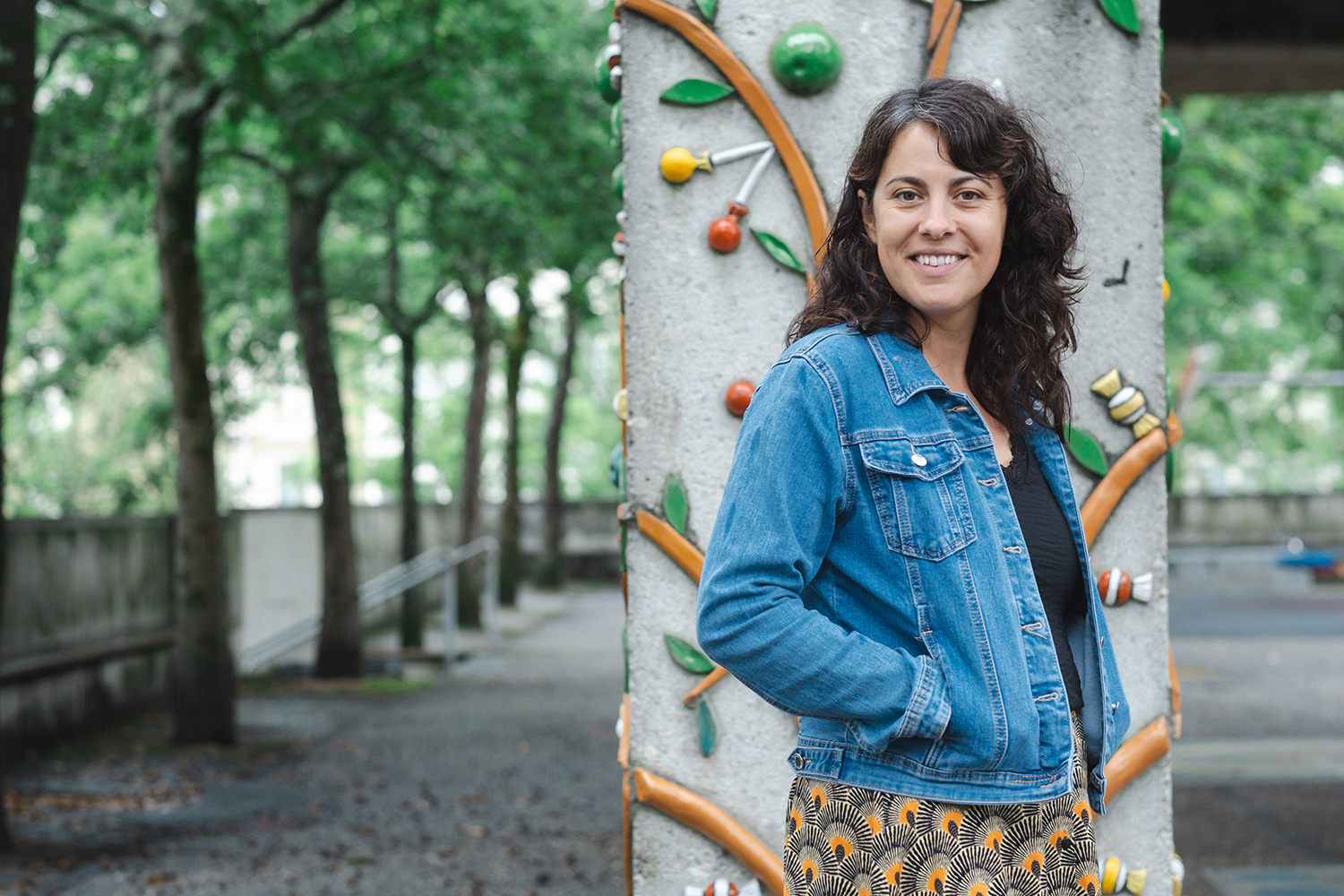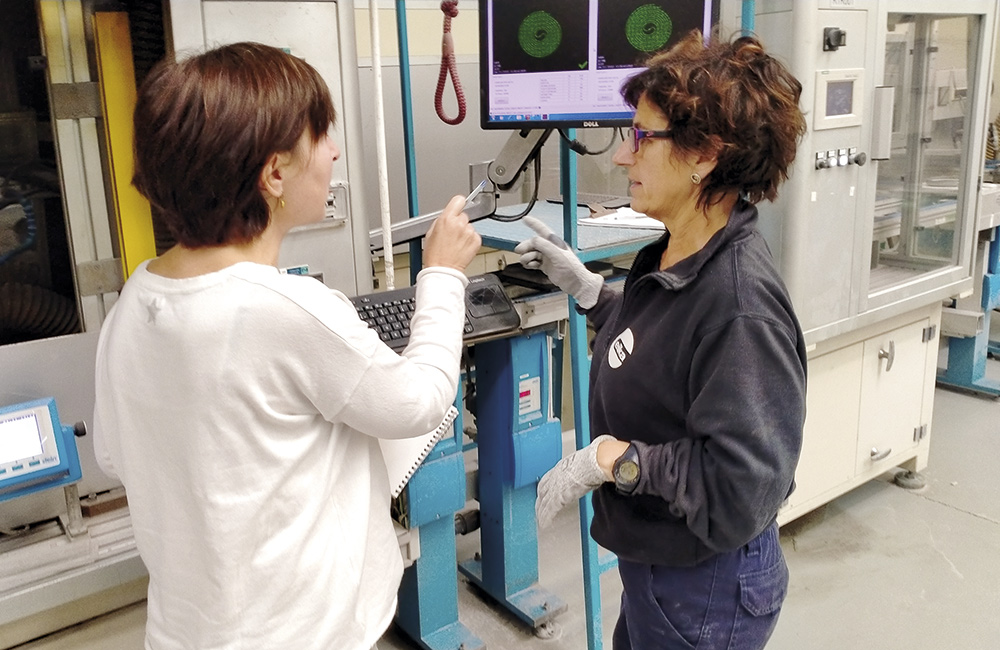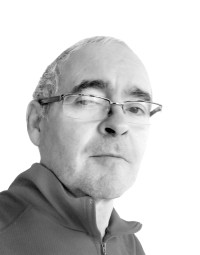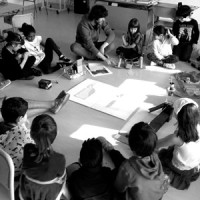"It would be interesting to see what action a citizens' assembly would take in relation to COVID-19"
- Democracy is possible. We have interviewed one of the authors of the book Civic Draw and deliberation to recover the power of the citizens (Democracy is possible... in Spanish), in which the citizens take less than ever the basic decisions of our daily lives.
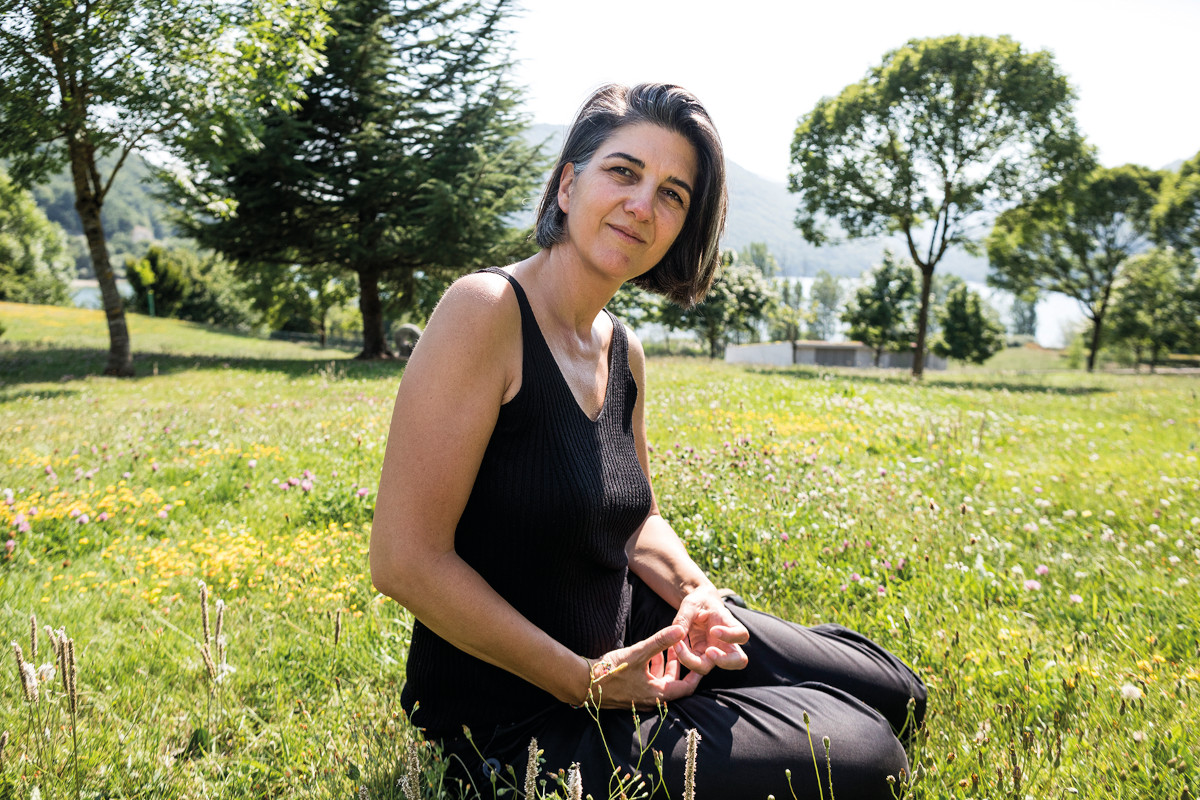
There's hardly any debate about managing COVID-19.
These extreme situations reveal everything that is not going well. And one of the things that's not going well in our society is that we don't have room to deliberate between different people, or to talk or to call. If we don't have spaces for it, we don't know how to address the issue in such a situation, we don't have the tools to address it. That culture is lacking. We need to rethink the political systems, radically modify them to create spaces for deliberation between us.
They claim democracy by lot. How are those spaces of deliberation that you have put into practice in Madrid, Barcelona, Cantabria...?
They are groups chosen by drawing lots and, therefore, if they have a social representativeness or, more specifically, they describe more than representing the diversity of that territory, which means that in those spaces we join with people who otherwise would never have met us. These are groups of at least 30 to 35 people.
This system is rotary. If the whole political system is based on the giveaway, it may be that we touch each other three times throughout our lives by participating in these processes. In the current system, power is in the hands of very few people and the rest of us are totally out of step.
In the system by raffle there are no political parties like today. Sometimes they tell us that this system depoliticizes. On the contrary, all the people who have participated in the popular assemblies by drawing lots have been repoliticized, and those people say so: “There are tools, we can reach consensus and agreements with unknown people.” And they feel they can contribute, because a lot of people don't feel legitimate to talk about public affairs.
There is a complete methodological process to reach agreement. The technique of deliberation is key: how we agree among the different in conflicting, complex and long-term issues.

How is it decided whether these citizens are not experts in this area too?
It is usually a deliberation process in 40 hours. The key is to ask the question well so that it can be deliberated at those times. Try not to have work for the house, because the work for the house generates inequality, some will have time and do and others will not... always take care that the conditions are the same for everyone.
In those 40 hours, it's about learning the first phase, deciding on a second phase, and creating recommendations to put the third into practice for the government. The learning phase starts with a blank sheet in which each member goes with their experiences, experiences and knowledge, and asks what information they should decide if they want to receive and who they trust in that information. In this way, the diversity of information papers is guaranteed, as it is important to collect information from all trends and not from one.
To deliberate, work is always done in small groups of seven people and in the plenary. In the small group, people feel comfortable and dare to speak.
Finally, recommendations are made and broad majority support is sought (e.g. 80 per cent). Try not to fall into the scheme of “lost ganancials”. And the voices of minorities are included in the recommendations section: Although an agreed measure with 80% sponsorship is approved, if the five people in that assembly want to explain why they totally disagree with this measure, it is taken up. This is very important to give visibility to minorities and to know where the different positions were in the subsequent processes.
Would the management of Pandemia be better with the deliberation spaces of the citizens selected by drawing lots?
A team selected by drawing lots could have taken the same steps. We don't know. But first of all, it would have more social acceptance, because in that group every citizen sees people like her.
I believe that the measures taken COVID-19 would be more appropriate for the following reasons: the first is the representativeness of the group. Representativeness has two advantages: on the one hand, we have people of all social levels, and that does not happen in the world of politicians. We know that the profile of politicians is known: it is people who have received education, it is higher than an average social level, more men than women ... In the draw groups, on the contrary, we have a faithful reflection of society: many people without education, people of all ages, of all ideologies (all have to be represented in these groups)... For example, in this crisis we have seen that care is indispensable, and that it is the least paid work ... In a group where half of the people you're going to decide are caregivers, will you make the same decisions? I do not think so. Another advantage of the group's representativeness is cognitive diversity. Scientific studies confirm that a heterogeneous group makes better decisions than a homogeneous group. When everyone thinks the same thing, there is no one to contrast and put what one has said.
Another reason is that these groups are very difficult to manipulate by pressure groups. Political decision-makers run long races and we know that they have relations with lobbies, not always transparent, there are also revolving doors... In a group chosen by lot, one in 35 people may be the one associated with a lobby and condition their point of view, but it will be one in 35.
In deliberative processes, lobbies also have their place as experts, but they are carried out transparently, inviting the lobbies from different points of view.
How and for what purpose are citizens' assemblies set up in the world?
I believe that governments are well aware of the impasse in which they are immersed, of the profound gap between them and citizenship. They have an absolute lack of legitimacy. And this mechanism is good for achieving consensus and social legitimacy on difficult issues.
The first citizen assemblies were held in Canada: they proposed the reform of the electoral law and then submitted to a referendum (in the referendum it was rejected). Subsequently, a well-known assembly was held in Ireland on abortion. The topic was discussed by the citizens' assembly and then submitted to a referendum (and legalized abortion).
The way that is being put into practice at the moment in different Governments is that Governments organize citizens ' deliberations groups, which in most cases are Governments deciding what issue that group is going to deal with, and those groups seek to reach a broad majority. And these groups recognize that among the many proposals that they're going to make, for example, the proposals that get 80 percent good is the ones that are going to go to government.
Governments tend to institutionalize these groups, to make them sustainable. This means that they're working constantly. There is one such characteristic in the Belgian Ostbelgen: There is a permanent group of 25 people on which topics should be recommended by other citizens’ assemblies (group that chooses the agenda). This group is renewed rotationally, that is, every year or every two years, half of the group. This permanent group can be effective on a serious and urgent issue. And this group, months before COVID-19 erupted, decided to work on the working conditions of health workers. There you see they're very well connected to reality.
Several governments have formed deliberative groups chosen by lot to deal with COVID-19 issues. It’s OK to do so, but the key is what is done later in the State of Oregon that concludes this group gomendioekin.AEBetako, a COVID-19 Citizens’ Assembly was held to decide which issues were addressed as a matter of priority. This group concluded that housing and education were empty.

It seems that it is convenient to have to decide only the vote. This model that you propose requires a new involvement.
The numbers indicate that when an invitation is sent to citizens to participate in such a process, 5-10% responds, in a relatively small percentage. And yet, in these groups, we get a much greater diversity than in any other process where people volunteer. The result is very positive, but we have a long way to go.
If there are many people who already have a lot of work and worry in their lives, there is no citizen’s statute that makes it possible a working day to participate in such a process... All this would help a lot. The least that is done now is to give an economic incentive. This incentive helps the participation of people with a more difficult social trajectory. These people participate for money, but it doesn't matter, when they come in, they work the same way and they see that they're capable, because what they're asking for is not so technical. What is required is to listen to others and think together. With these processes, many of the cultural schemes that we have are broken.
Often, highly politicized people think that their ideology already gives answers to all the problems, and so why confuse with those who think differently? They see no benefit whatsoever. There are a lot of people who tell you “the best is what I think.” And that's what we all think, that we're right! We must trust that in a process of this kind your thinking will be well represented and that these people will be able to make the best decisions.
Is it possible that the whole policy is organised in this way?
There are a lot of people in the world who are imagining what it might have been like. The model they represent is that formed by many assemblies. You think of the image of ancient Greece: assemblies to decide the agenda, assemblies to deal with the issues and assemblies of control. The assembly will decide on the important issues to be dealt with and an assembly will be organized to deal with each of them, and finally, the control assemblies would follow up to ensure that recommendations are put in place... These are systems that are thinking but have never been carried out.
I do not believe anything that has not been tested. Fifteen years ago I first learned about this issue and I really liked it, but I said “I want to see if it is effective”. In the assemblies I have seen that yes, they are effective. Now, like the whole political system that would work? I don't know.
Why have the authorities been willing to make quick and firm decisions about the virus, and on the contrary are not prepared to make such decisions in the face of the problems caused by the virus?
We can think that lobbyists have their influence. There's a tremendous lobby of interest groups so that things don't change. Political parties depend on them. That is why it is so important that the groups of people who do not depend on these lobbies are the decision-making centres.
Now the climate assemblies are in Bogie. The most famous has been the French, called by the Macron government. But why did he call the assembly? The pressure of these jackets that demand more democracy.
For the first time in the history of climate assemblies, the French Government asked them not to make general recommendations, but to turn directly to the drafting of the law. The assembly was made up of 150 people, decided by the draw and worked for seven weekends, almost a year and created 150 recommendations. This Assembly, in addition to experts, had at its disposal jurists to help them draft legal texts. The French Government told them at all times that it would put into effect the concrete measures recommended by the Assembly without filters. And, of course, when the Climate Law has been lifted, it has not taken up many of the measures proposed by the citizens' assembly. It is well known that the automobile lobbies, the aeronautical industry, the hydrocarbons, the intensive agriculture... have made a great deal of strength the day after the assembly has proposed the 150 measures, all the lobbies present in the French Government, saying “this is not possible”.
Climate assemblies are bogie, they've come together in Scotland, one in Britain, Spain started theirs in November... As citizens, we have to stand on top of those assemblies and see what the governance of those assemblies looks like so that we can rely on their outcome. And then press for the recommendations of the citizens' assemblies to actually be put into practice. Without the pressure of society, these assemblies will be held, but on non-substantial issues. That's the key.
With the pandemic the technocratic approach has been strengthened, doctors and scientists tell us how to live our lives. This system requires believing that people without training can make good decisions.
On all issues there are always two levels: the political level and the technical level. We often mix the two. The citizens' assemblies make decisions at the political level. Behind it are the professionals who are going to offer a technical solution to implement this political decision. But first there is a political level, and that is what the assembly does.
It is wrong to think that decisions are always taken rationally. It is known that many of the decisions are made emotionally, but with a lot of data and in a very rational way. This doesn't mean we don't take the data into account. But we have to recognize that we also make decisions from our life experience and we make them as people, not as data processors.
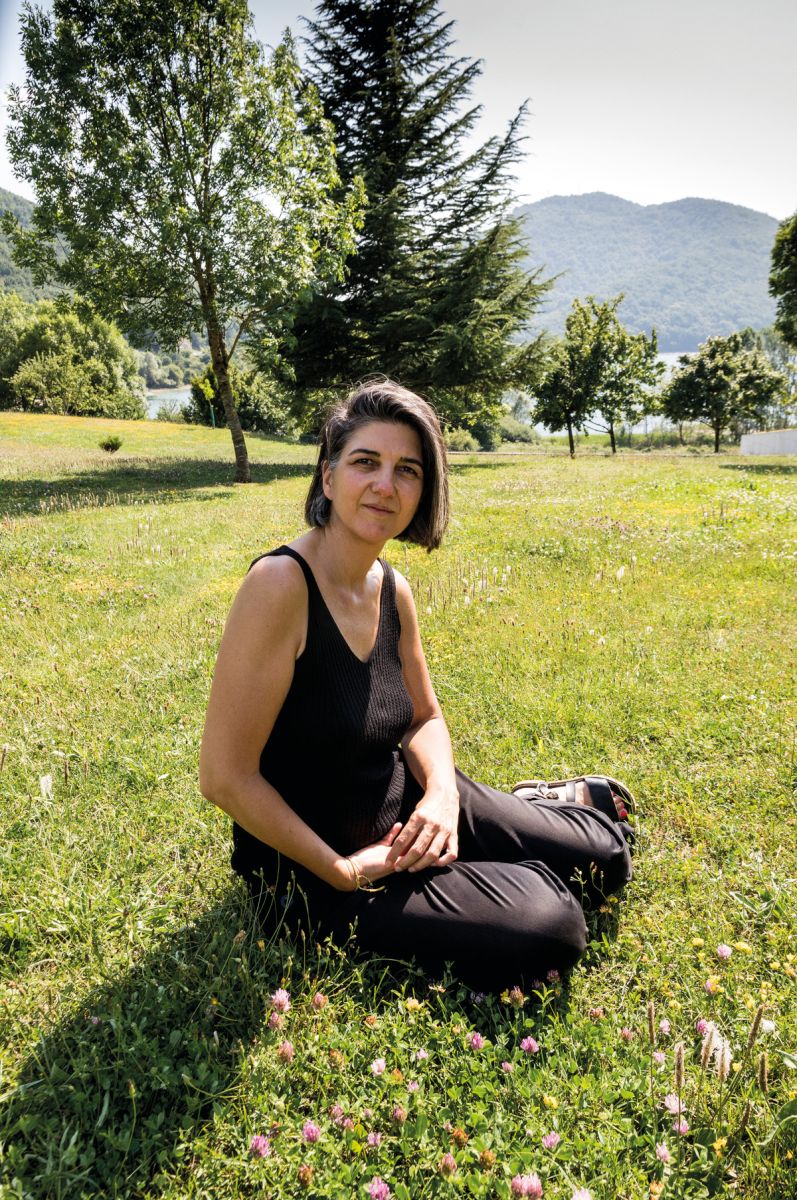
Hezkuntzaren ardura konpartitua dela eta familiaz eta eskolaz harago herria bera eremu hezitzailea dela, herritarrak hezitzaile ere badirela ulertzen du Herri Hezitzaileen Sareak. Otxandiok (irudian) bat egin berri du sarearekin eta dagoeneko 36 herri direla jakinarazi dute.
Congratulations to the Durangarras who have had the opportunity to express their opinion on an inherited urban megaproject in urban matters. Not a few people have been encouraged to participate in the organised consultation, given the policy that some political parties are... [+]
On September 23, 2020 we participated in the Auzogune del Casco Viejo. The neighborhood is the space for participation proposed by the City of Vitoria-Gasteiz, where citizens, municipal technicians, associations and politicians exchange opinions. The first item on the agenda... [+]







